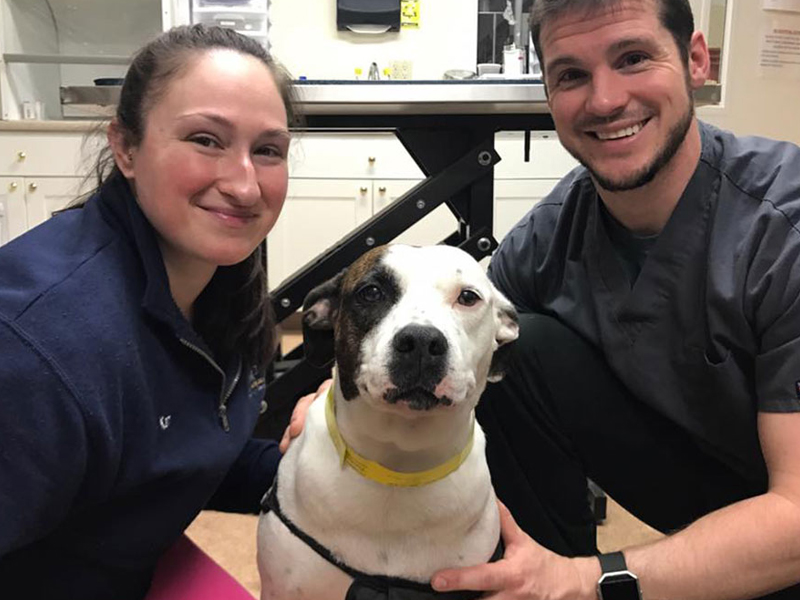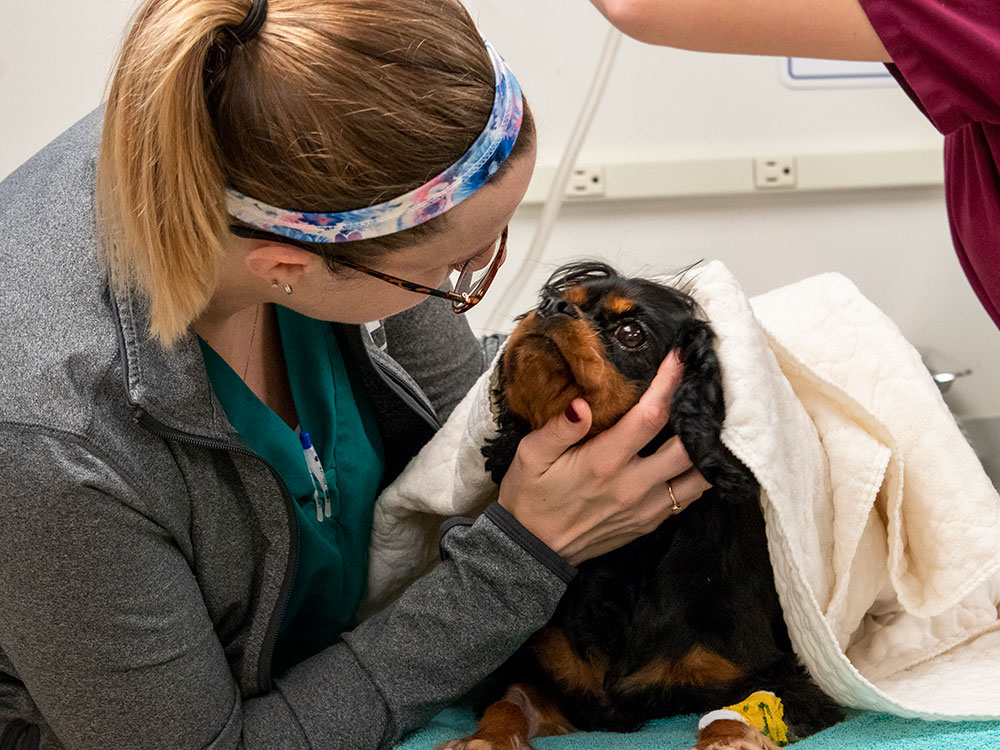A few minutes of prior preparation can often make a world of difference in the successful outcome of an emergency situation.
How to save time in an emergency
- Keep your veterinarian’s number posted in a location where all family members are aware of it. We recommend you keep this number in your cell phone as well.
- Keep the number for poison control posted in a similar fashion. Pet Poison Control can be reached at 888-426-4435. A $65 fee applies.
- Know the location and phone number of the nearest 24-hour emergency facility.
- Keep your pet’s identification tags on them at all times. Ensure that if microchipped, the information is up-to-date and registered.
- Consider creating a pet first aid kit, a useful item when dealing with minor mishaps at home (see below).
- Have a prepared and updated list of the names of all medications that your pet receives regularly. This list should include prescriptions, over-the-counter medications, and vitamins/supplements, including doses and time intervals. Bring this list with you when you visit our emergency or specialty hospital.
Pet first aid kits
Building your own first aid kit for your pet is simple and very useful in the event of an emergency. Below is a list of items that you can easily find at a supermarket or drugstore that can provide a first line of defense for your pet in an emergency. Remember that home first-aid is not a substitute for veterinary care!
- Cohesive, flexible bandage wrap
- Roll of gauze
- Gauze squares (3" x 3")
- Roll of cotton
- Medical tape (1" and ½")
- First aid cream (e.g., a triple antibiotic cream such as Neosporin)
- Eye wash (e.g., saline solution)
- Peroxide
- Rectal thermometer
- Emergency blanket
- Scissors
- Forceps (or long-handled, blunt-end tweezers)
- Ice pack
- Nylon leash
- Vaccination records



